Monopoly. The whipping boy of the tabletop hobby. Trashed in conversations, burned in forums, and lambasted in reviews by some of the tabletop media’s most influential people. Even the great Tom Vasel descended from his Tower to record a video explaining exactly why he despises Monopoly.
But you know what? I don’t think this attitude is fair and there’s a strong argument to be made that it’s actually harmful to the hobby. Let’s take a deep dive into the good and the bad of Monopoly and explore why an ugly attitude doesn’t help anyone.
1) The Good: In Praise of Monopoly
Monopoly’s long-lasting popularity isn’t just down to effective business practices and marketing – there’s substance behind its survival. Modern Monopoly was published in 1933; it should be admired for its continuing capacity to please. It’s even been commended for its accessibility, with the individual playing pieces easy to distinguish by almost anyone.
Monopoly was easily the best game of the 1930s and for several decades following. Old video games are revered despite their flaws, old board games despised because of them. Older cars are cherished as vintage. Dismissing Monopoly for those reasons alone is like suggesting that Nintendo’s Ocarina of Time was rubbish because Breath of the Wild exists now. Perhaps we need to remember Monopoly’s charms on its own terms?
Gluttony, Citrus Fruit and the Noose
The different phases of Monopoly satisfy separate gaming itches. The initial gluttony of buying and auctions moves seamlessly into plotting and dealing until towards the end you’ve played your hand and the game tightens like a noose whilst you tip-toe tensely around the board. Someone crows that they’ve gone to jail, safe from the deadly path for a few turns and the table roars with laughter when they’re freed next turn with an unlucky roll. The old boot skips nimbly between hotels only to trip on the solitary dangerous space for half the board. The sign of a good game is frequently generating moments such as these, to create stories that draw you back for another go.
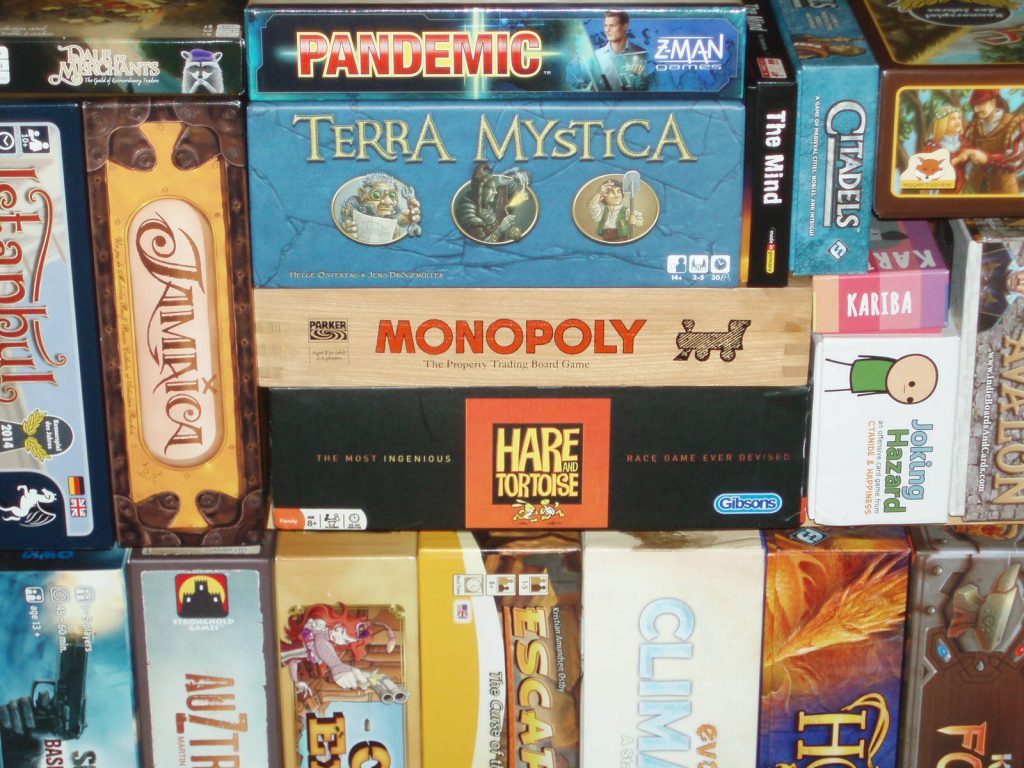
I like to see who goes for what strategy: chasing cheap investment in a grubby effort to bankrupt the opponents before they get started; maxing out Park Lane and Mayfair (the UK edition’s most expensive properties) to create sapphire snares lurking patiently until the end; or perhaps a path between those pincers, a middle ground of citrus fruit properties sweetening in the end-game sun. Yes, there’s luck involved but that’s what takes the sting out of it. You’re all gambling on whose horse stumbles first.
Customisation, Collective Ownership and Conkers
Monopoly’s universal familiarity allows for customisation (check out The Daily Worker Placement’s 6 suggestions for bringing Monopoly into the 21st Century, although be aware that 3 of them simply involve playing by the actual rules). Play to the bitter end, to a time limit or until the first person falters: it’s up to you to enjoy it in whichever way you want. Few people have even read the rules, the knowledge passed down through families and groups as oral tradition. Such evolution can produce house rules that limit the enjoyment, but selection also results in ideas that revitalise it as well.
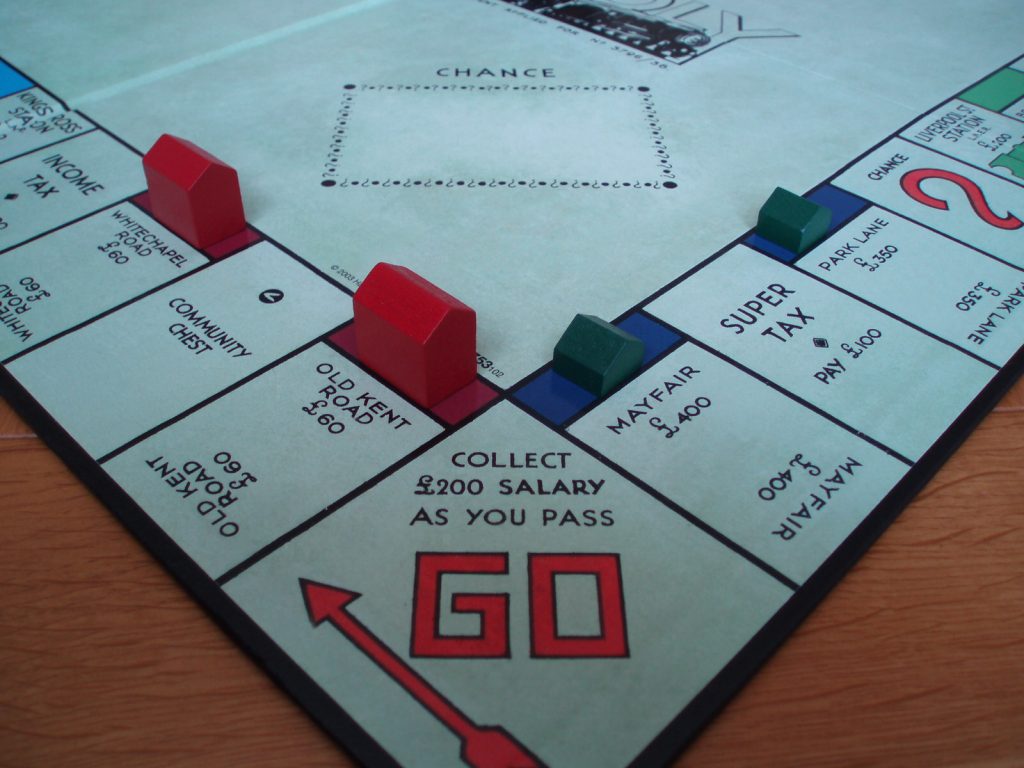
Our collective ownership gives us permission to tweak and change the gameplay, a structural flexibility absent in most board games. Last Christmas we played something we called London Above and Below – the standard UK edition joined to the London Underground edition in an angular figure of eight. An inspired idea, a minute of discussion and we were ready to go, casually playing a different game whilst catching up with family. What other game of Monopoly’s weight allows for such easy and extensive modification in a group consisting of a hobbyist, casual gamers and non-gamers?
Monopoly is baked into our subconscious, its ubiquitous presence engrained in our societal psyche like tag, conkers or hide and seek. It’s remarkable.
Petulance, Landlords and $500
Of course, there are the horror stories of that game, but if you play something enough times a rubbish round is bound to slip through. Monopoly has been played a lot. Think about the age most people are when they first play Monopoly: they’re moving from toy-games like Mouse Trap or Ghost Castle and onto games that ask for a greater investment in time, effort and thought at an age where the idea of winning as the entire purpose of playing is yet to be fully eliminated. The dawning realisation of my own petulance in response to losing when I was a boy was far more instrumental in shaping my attitude to competitiveness than any verbal lesson about being gracious in defeat.
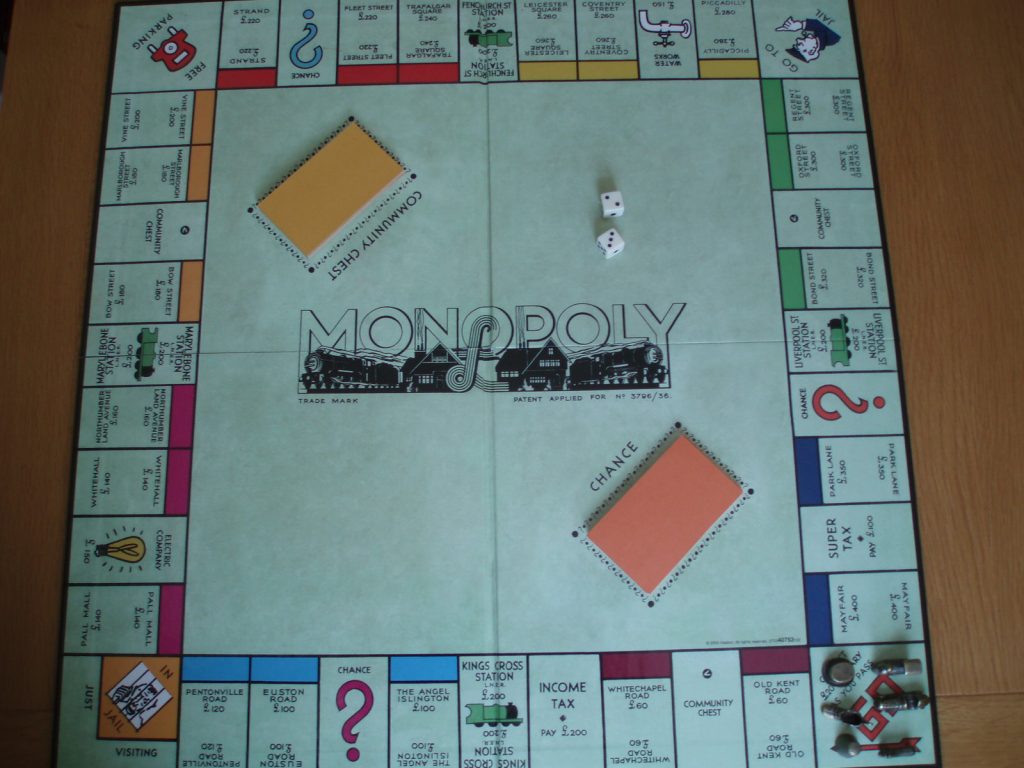
Co-incidentally, education of a different sort was the original point of Monopoly, with the argument that if Monopoly were fun then it wouldn’t be meaningful. The Landlord’s Game by Elizabeth Magie was created in 1903 to illustrate the negative aspects of concentrating lands in private monopolies. Three decades later Charles Darrow was introduced to a version of the game and distributed it as ‘Monopoly’ with minimal changes (including keeping typos from the version he copied). In one of the great ironies of capitalism, Darrow sold the copyrights for the game to Parker Brothers and became a millionaire, whilst Magie ended up with only $500. Educational from its inception indeed.
Unwritten Rules, Seeds and the Tricky Beast
The vast majority of us start off playing classic board games like Monopoly. A lot of people even have fun doing so. Our early games teach us to understand the point of play, to learn the importance of competing in a friendly way but also the greater value of social interaction (check out these great examples of board games for younger kids). We develop the unwritten rules that govern how we behave when we play as adults. You may be able to achieve the same with other games but for a significant number of people it has been with Monopoly.
A childhood of Monopoly primed many of us for a future of gaming and we owe it our gratitude for that. A sense of nostalgia may even help renew the attraction of board games as we return to the fold. My experiences of Monopoly shaped how I play today; it planted the gaming seeds that are now blossoming.
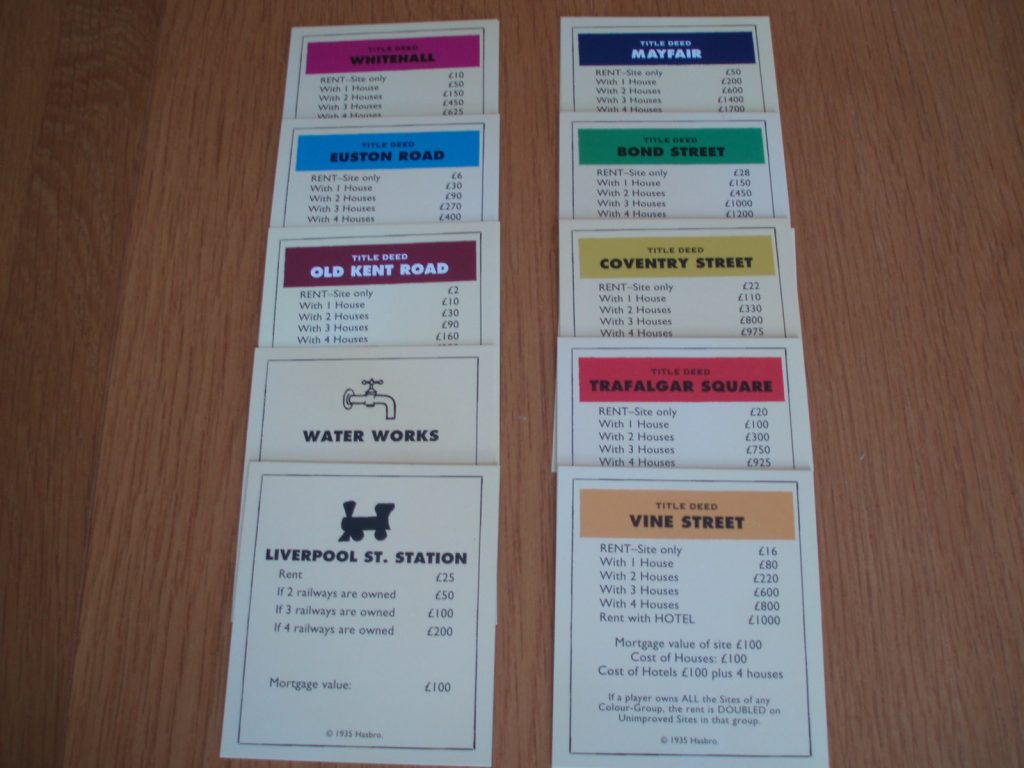
The family game is a tricky beast. It needs to be simple enough for the kids, complex enough for the adults, thematically broad enough that everyone can get on board (pun intended) and engaging enough that they want to. Monopoly remains popular because, by and large, it succeeds in bringing people together, entertaining and casually teaching valuable life lessons. It’s been doing it for decades.
2) The Bad: Problems with Monopoly (and why they don’t really matter)
Monopoly’s unique position in our gaming culture is something to cherish not deride. It’s a fascinating phenomena and, personally, I still enjoy playing it. I know I’m not the only modern board gamer who does. Even Rob Daviau, the man who effectively created the Legacy genre, was once a Monopoly Championship judge. Yet Monopoly is the whipping boy of the tabletop scene. Why?
Luck, FOMO and a Dodgy End
Of course, there are plenty of reasons not to like Monopoly, and for some, this broken instrument of boredom taints the image of the hobby they love. Reasons include
- It relies too much on luck.
- Some properties are inherently more valuable than others regardless of their stated price.
- Many of the house rules may break it further.
- It relies heavily on roll-and-move – though this statement often overlooks the fact that Monopoly revolutionized roll-and-move from a Point A to Point B race into a repeating journey, with external economics and win conditions.
- It casts a shadow across the whole tabletop hobby making it frustrating to be judged by other people’s misconceptions about what board games are and can be.
- Monopoly’s monopoly prevents other worthy games from getting exposure.
- Monopoly is a corporate machine, lazily churning out geographical and franchise tie-ins and holding the hobby back with barely a hint of innovation.
Perhaps worst of all is the way that Monopoly finishes. It’s a notoriously terrible piece of game design: Monopoly ends when only one player remains. Player elimination or concession is the order of the day. It’s no wonder that few modern board games use such an ending mechanic, especially games that take as long as Monopoly can. It drags out the least interesting part of the game, turning it into a slog with the knocked out players often getting bored and going to do something else (which in turn may make the remaining players even more frustrated as they wonder what exciting thing they’re missing out on). To combat this, the rules of modern Monopoly also suggest a shorter alternative – a time limit agreed in advance with players comparing net wealth at the end. It’s well worth considering.

It’s hard to deny any of these problems. Purely as a game, without its history or associations, these could be fatal. Released today it might well be viewed as an unremarkable drop in the ocean. But it’s not as simple as that and there’s no escaping the fact that Monopoly isn’t just any game. Monopoly’s influence on the hobby has been positive as well as negative. It’s a gaming grandparent, you can trace its DNA in its descendants and the modern scene owes as much to Monopoly as it does to Settlers of Catan, Hare and Tortoise or Dominion.
Flaws, Family and Clever Mediums
Michael Heron at Meeple Like Us recently published a review of Monopoly, discussing the mechanistic problems with the game, the decisions available to the players and the types of luck involved. To co-opt his own TL;DR format: It’s great! You should probably read it if you can!
Towards the end he points out that Monopoly can be fun, but that it’s not down to the game itself but the people we play it with: “your friends and your family”. In another review Michael says:
“If people play Monopoly just as a way of spending time with their family, it can serve an important role… The game creates the context for meaningful interaction… In that respect, I understand the appeal of the game… It’s always been my view though that you can have all of that, but with an actual *good* game at the core of it. Monopoly isn’t that game.”
Here’s the thing though. It’s only in recent years, as modern board games have become popular enough to appear in high street shops (in the UK at least), that we can begin to imagine what could be achieved by combining good company with a good game. As a result, many of us have spent a lot of time having fun with Monopoly with our families and friends, oblivious to the additional fun we could be having with other games.
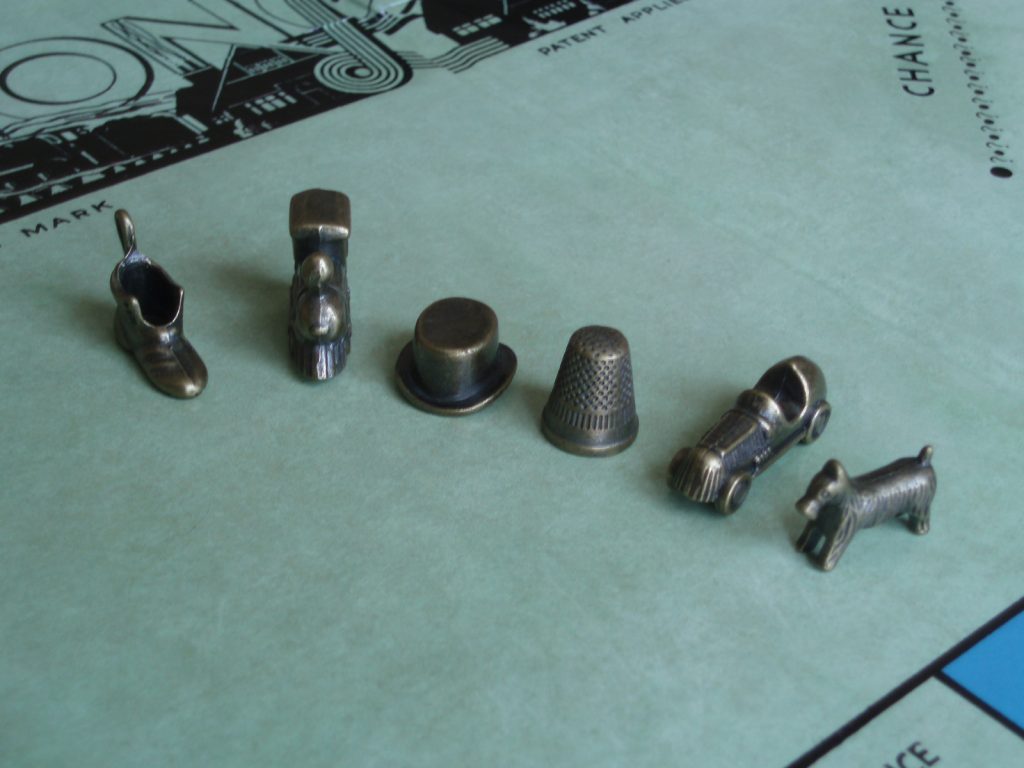
For many, multiplayer board games are mediums for enjoying spending time with other people. Clever, exciting, competitive and challenging mediums, but mediums all the same. One of the themes that comes through when talking about Monopoly is that it is group dependent. It’s the same way that The Resistance (a fantastic game of hidden identities and social deduction) falls flatter than Monopoly’s paper money with the wrong people. Every game depends on the play group and their expectations; Monopoly is no different.
The games I play depend on the people I’m with, on their previous experiences and interests. Gateway games with some people, hobby games with others, ‘classic’ games like Monopoly with others still, and Bunny Bedtime with my 2 year old son. If Monopoly provides those meaningful interactions and entertains in the process then it’s not a bad game. Which isn’t the same as saying it’s a good one.
Entanglement, Fur Coats and a Stone Cold Classic
The argument that you could have more fun playing a better game is completely true and yet utterly irrelevant when considering Monopoly’s curious position in the tabletop landscape. Monopoly is too entangled with the hobby’s history and our personal experiences.
I grew up with Monopoly as one of the few options available in the mainstream, as did the generation after me and every generation before me for over half a century. It’s not that other board games didn’t exist, they just weren’t visible.
Being introduced to Carcassonne several years ago was like entering the wardrobe, tentatively pushing through the fur coats and finding a cardboard Narnia beyond. The hobby has been hidden from popular view, not obscured by Monopoly’s omnipresence but eclipsed by the dominance of video games. It may have been published in 2000 but you had to work hard to find Carcassonne before 2015 unless you already knew about the hobby.
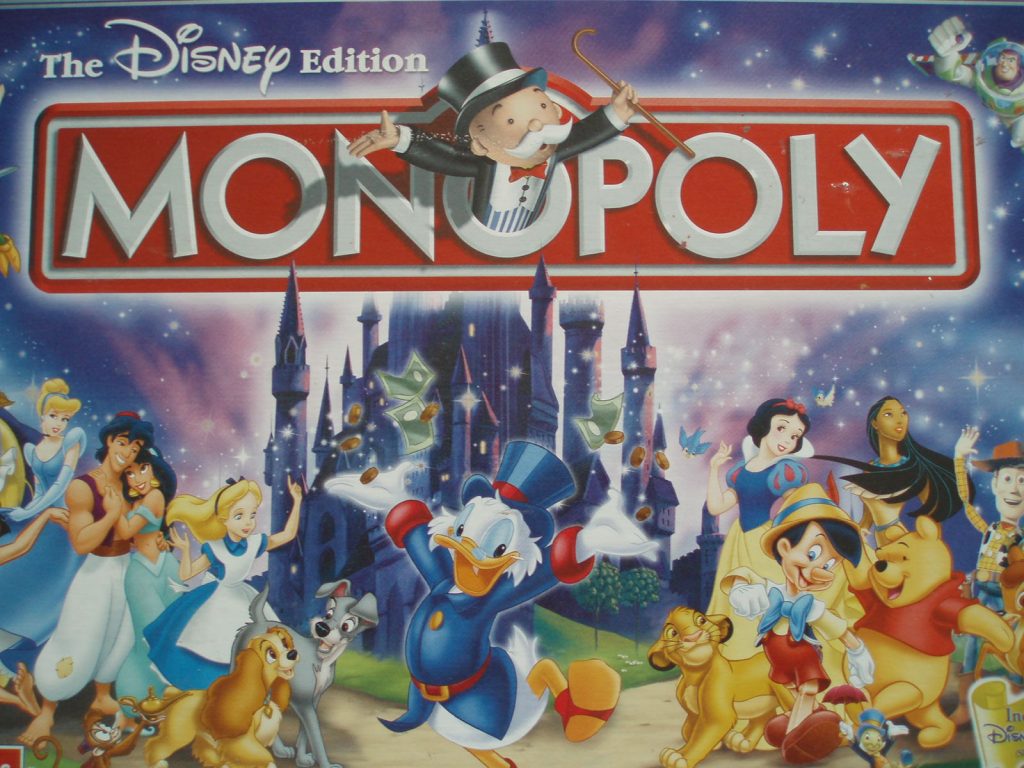
Lifelong board gamers may have kept the hobby alive during the advent and rise of the home console gaming system, but Monopoly kept board games in the public consciousness. Regardless of films like Clue (a stone cold classic) and Battleship (less so), Monopoly has done far more to promote board gaming in popular culture than any other game. Say ‘go directly to jail’ and chances are someone will answer with ‘do not pass go, do not collect £200’. Board games aren’t an obscure practice that no one is aware of – thanks to Monopoly they’re a known thing.
In the quest to promote modern games it’s far better starting with those foundations laid. I enjoy board games because in a busy life they bring family and friends together. When we discovered modern board games they were simply introduced, not as an entirely novel concept but as a new twist on the old activity. Cardboard Narnia was an expansion, not a replacement.
3) The Ugly – A Toxic Attitude (and why it’s harmful to the hobby)
I enjoy playing Monopoly. I don’t play it often and only with certain people but I don’t believe it’s a bad game. Its history, both as a piece of our hobby’s cultural heritage and my own personal interactions with it, means that it can be a lot of fun in spite of the acknowledged mechanical flaws and corporate associations. It’s not a perfect game but on its own terms, it’s a great one. It makes the practice of Monopoly bashing an icy blight on the landscape, Jadis’s Age of Winter if you like.
It’s really quite off-putting.
Impressions, Tools and an N64
Getting more people playing board games is better for us as gamers and for the hobby as a whole, providing us with more and varied people to play with and ultimately producing better games to play. But the method of approach is crucial and this standoffish behaviour about Monopoly does us no favours.
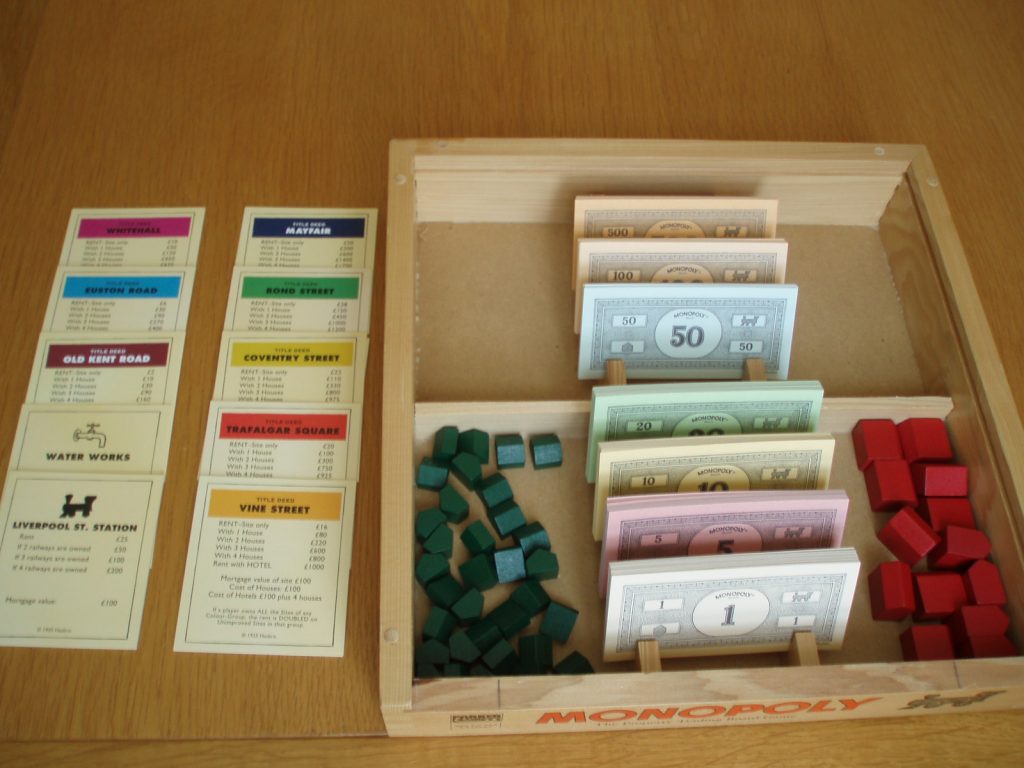
Let’s think about the people we’re trying to attract and the impressions we give them. Chances are that most people who played hobby board games when they were younger either still do or should be easy to persuade of the benefits of the hobby. That leaves the remainder who can be broadly divided into two groups: those that never really played board games and those that played games like Monopoly – the ‘classics’. It’s vital how we present ourselves if we want others to join us.
To the non-gamers we don’t want to suggest that there are rifts between us. It shouldn’t be us vs. them, modern gamers vs. the “dolts” who still play Monopoly. What’s great about modern board gaming is how inclusive it can be but this arrogant and patronising attitude concerning Monopoly is alienating.
And as for those who played Monopoly and other classic games as a child, we shouldn’t trash their memories. Telling people that the games they enjoyed are in fact rubbish isn’t a way to win them over, it’s insulting. Stating that what they remember is wrong, whilst insinuating that they’re idiots doesn’t cultivate a receptive frame of mind. They’ll either stop listening or assume that being wrong about the past means we’re probably wrong about the present.
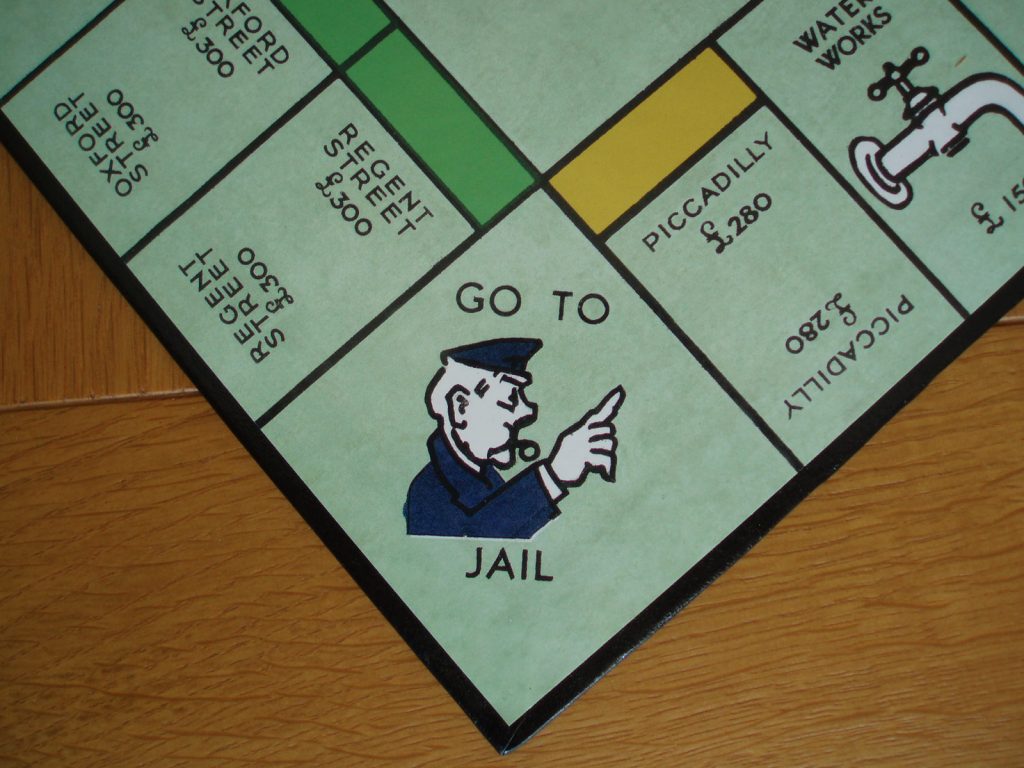
When I was a teenager I adored our Nintendo 64. On meeting our new neighbours for the first time I discovered that the boys had a Playstation. I’d heard about such mythical cartridge-free consoles and was naturally curious… right up until one of the boys said the N64 was crap and the PlayStation was way better. We’d just moved to the area, deep in the north Herefordshire countryside, to a house surrounded by little but fields and sheep. We knew virtually no-one and options for friends were extremely limited. But take a guess as to whether we became pals? Of course we didn’t. I never even tried a Playstation. The pride of the machine I loved had been challenged and if the people who liked the Playstation behaved like such tools then I didn’t want to be one of them. It was my loss (probably on both fronts) but it was the approach that had so repelled me.
It’s what this toxic attitude about Monopoly is threatening to do.
Passing Go: An Attitude Adjustment
Bringing new people into the board game hobby is an incredibly rewarding thing to do, but in our eagerness to show off the present we shouldn’t dismiss the past. Let go of the trashing and arrogant dismissal, lose the off-putting attitude. Try not to imply that only morons play or enjoy Monopoly. There are other ways to go about it.
If you are looking to introduce your friends to the world beyond Monopoly you could take a board game Step Ladder approach or follow one of our guides for introducing your friends to board gaming. But remember also that there are also some people for whom you may have more luck persuading them to play what they know and like. I’d much rather play Monopoly with my dad than watch his eyes glaze over as I explain a newer game and then after a couple of turns say good night as he heads to bed.
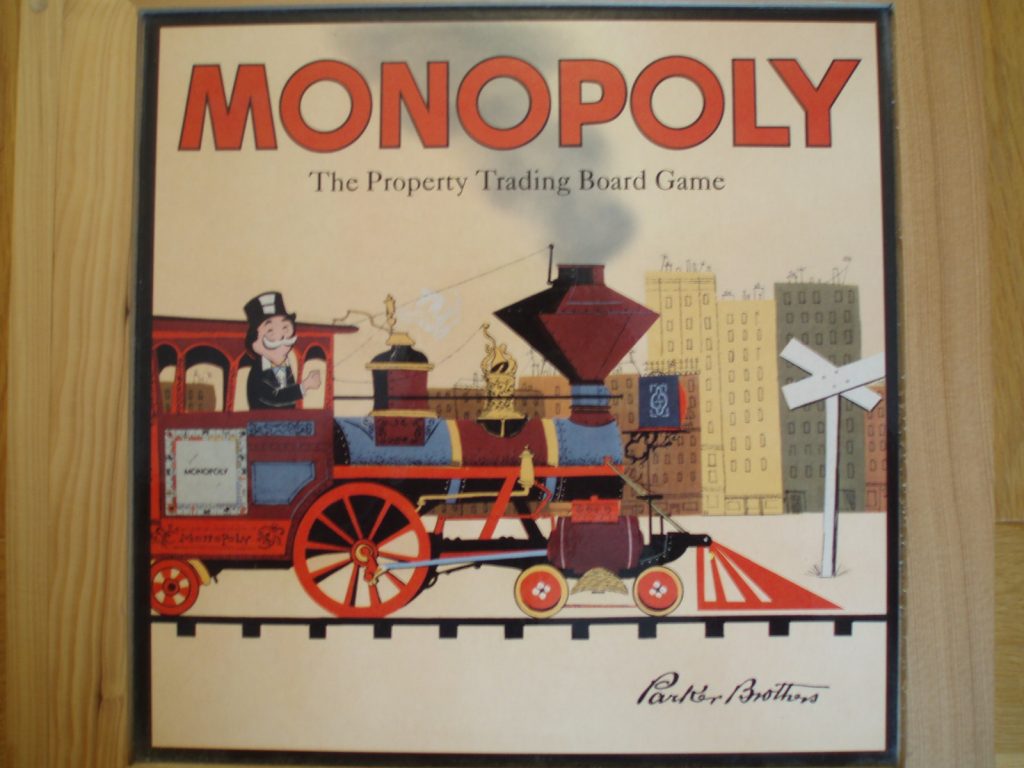
Video games have come a long way since Ocarina of Time, cars have come a long way since the Ford Model T, and board games have come a long way since Monopoly. Let’s take the same attitude and acknowledge previous successes whilst promoting modern advances. You don’t need to love, praise or play Monopoly, but it deserves your respect for what it has, and continues to, achieve.
Monopoly is a fundamental foundation to gateway games. It’s not going too far to suggest that Monopoly is the lynchpin upon which all of board gaming rests, the Aslan of today’s cardboard Narnia. It may not be as sleek or exciting as what the kids are doing these days but it still deserves respect because without Monopoly we wouldn’t be where we are now. And where we are now is pretty darn special.


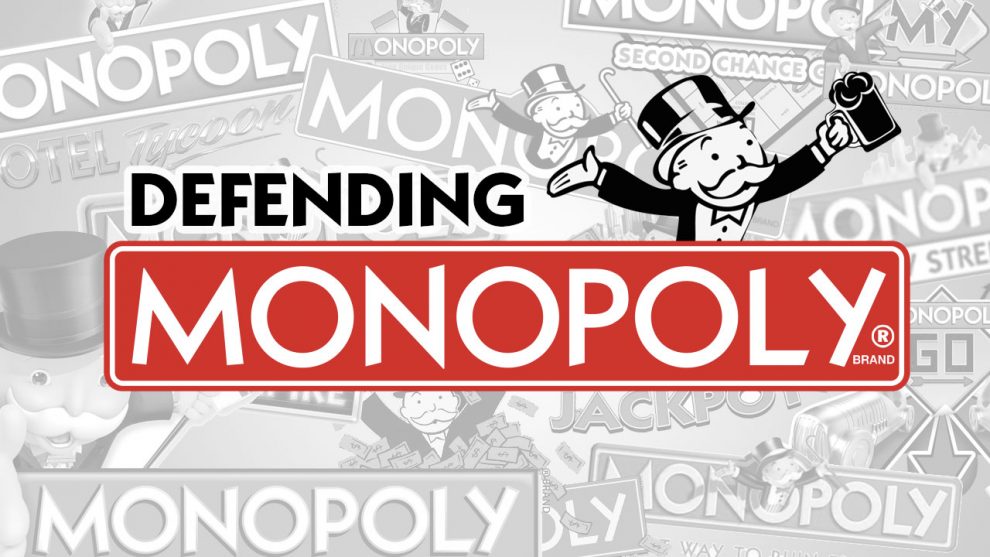








Great article. Thank you for examining this strange behavior of Monopoly bashing. ?
Thanks Will, very kind of you to say. It is an odd behaviour, I thought it was important to discuss the arguments around it and the wider impacts that it has. I’m glad you enjoyed it! 🙂
Boardgaming is niche because it requires patience and intelligence to enjoy. Many demographics have lower amounts of patience and intelligence than others, and dumbing down boardgames to ‘Welcome’ them seems like cutting off the nose to save the face.
Really thoughtful and well-written piece. Thank you. I’d like to say though that one of the reasons, I believe, it is bashed is because it has consistently been cited as a reason for the “Oh… I don’t like boardgames” attitude in so many people. “Why not?” “Oh those games of Monopoly with Competitive Dad”. This deeply ingrained attitude in some people can be very difficult to overcome and hence the discriminatory attitude on behalf of boardgamers who genuinely love introducing people to the world beyond Monopoly can become further calcified.
“I hate Monopoly because it means that people only have bad experiences of boardgames” which of course can further entrench everybody’s prejudices…
Thank you Keith, I’m glad you enjoyed the article!
Thanks also for your thoughts, I absolutely agree that sometimes the preconceptions of people who’ve had a bad time with Monopoly and therefore think all board games are like that can be frustrating. “I play board games.” “Oh, like Monopoly?” “Well… yes and no!” Its rather like telling someone that you like video games and them recoiling because they hated Space Invaders. There’s a lot more to board games, so many different types of experiences, than this one game that was created around a century ago and its annoying if that’s all someone can see.
I try to view it positively though – they have a frame of reference which is a starting point from which to show them the amazing diversity of games today (if they don’t run away first!). Not every game is for everyone. I could spend my time trashing Monopoly or I could spend my time sharing my love of other games that might be more appealing to the Monopoly-scarred. I know which approach I personally prefer.
Incidentally, and only semi-relevantly, Eric Lang recently posted an interesting idea on Twitter: “Every game designer raised on modern games should play Monopoly with players who love it.” The replies are a fascinating mix of opinions: https://twitter.com/eric_lang/status/1493217472996065280?s=20&t=MhV1Y2k2QjN27HEJ_R3XNg
Agree wholeheartedly and personally I take great pleasure in seeing the scales fall from people’s eyes when they find a game they love opening up the world of board gaming to the. I have introduced many people to games who are now avid gamers and it brings me no end of pleasure (mainly of course so that I can play with them 🙂).
One final point – my Father always insisted that we play Monopoly with the correct rules, specifically auctions and no money in Free Parking, for the very reasons that are upheld – too much money in the system and too many properties. Whilst I didn’t like the way it turned him into an avaricious capitalist, I never hated the game.
Absolutely agree, playing with the wrong rules can ruin the game completely. A lot of people’s bad experiences with Monopoly are down to playing with house rules.
That is an interesting take.
Conversely, I believe that bashing Monopoly might be important to the hobby.
The thing to remember is that the muggles also hate Monopoly. Some of them think that Monopoly is the apex of board game design- and consequently will not play board games.
Monopoly is less of a gateway game than a gatekeeper game.
I don’t deny that Monopoly casts a very negative light on the hobby for some people and being able to show those people how distanced the hobby actually is from Monopoly is incredibly important. My experience though is that there are plenty of people who still like or have treasured memories of the game and therefore indiscriminate bashing, as a good proportion of folk in the hobby do, does more harm than good.
I like your thought that Monopoly can act as a gatekeeper and for some people that’s undoubtedly true. I think we can try and combat that by showing the best that modern board games have to offer. But, for me, Monopoly bashing is also gatekeeping. It’s a negative behaviour that we can control and limit to focus on presenting the hobby at its best rather than focusing on the failings of distant past game design and big business.